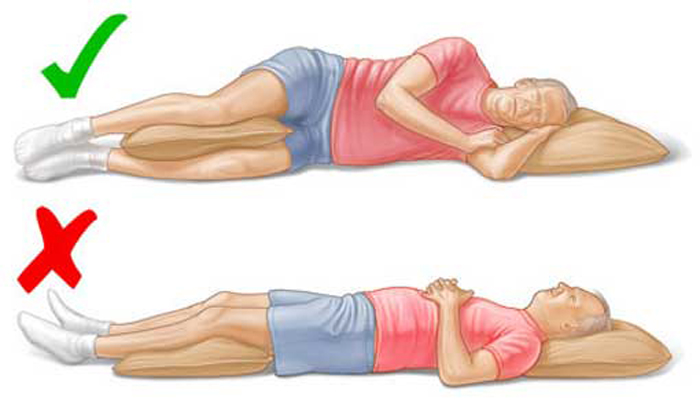It is not difficult to reduce and treat snoring if you understand the nature of this condition. Today’s article will give you a better understanding of the causes of snoring and some tips to help you stop snoring at home.
Causes of Snoring
During deep sleep, the muscles completely relax, causing the tongue to block the throat and lead to snoring. The tongue has a complex and unstable balance due to the constant work of its muscles, which can be affected by factors such as alcohol, acid, tobacco, hot and cold temperatures, and continuous movement for speaking and swallowing, resulting in deformation.

Snoring can disturb others.
As we age, the muscles and mucus in the throat increase in volume, and the constant eating and speaking habits cause the throat to thicken over time. When we sleep, the muscles relax, causing the tongue to fall back. While awake, the tension in the tongue prevents it from collapsing into the back of the throat. That’s why people only “roar” when they sleep.
Another cause is obesity, which results in a lack of chin definition, a fatty neck, and well-developed facial muscles. There are different levels of snoring, such as simple snoring, snoring with apnea (a loud type of snoring that can shake the house), and snoring due to throat deformity.
Treatment Options
Apart from patients who snore with apnea and those with a narrow airway that significantly affects their health and may require surgery, patients with mild snoring can improve their condition with the following tips.
Drink Tea and Soy Milk
Tea helps clear mucus from the throat, reducing congestion. Soy milk has a similar effect. Therefore, try drinking various types of tea, such as chamomile, lemon and honey, green tea, peppermint, or regular black tea daily to prevent snoring. Also, use soy milk instead of fresh milk.

Tea helps clear the throat, reducing snoring.
Avoid Alcohol and Other Intoxicants
Alcohol and other intoxicants stimulate the central nervous system, causing the throat muscles to constrict. This obstruction of airflow through the throat results in snoring. Therefore, if you have a habit of storing beer in your refrigerator, it is best to minimize or avoid it to improve your snoring condition.
Reduce Fat and Lose Weight
Losing weight and reducing fat aim to decrease fat accumulation in the neck, making it lighter and easier for air to pass through without obstruction, thus reducing snoring. Therefore, limit your fat intake and exercise regularly to lose weight if you are overweight.

Weight loss helps reduce neck fat and, consequently, snoring.
Gargle Honey Before Bed
Honey has anti-inflammatory and antibacterial properties that help prevent airway obstruction in the throat, making it effective in combating snoring. Try gargling a small amount of honey before going to sleep, and you may be surprised by the results.
Change Your Sleeping Position
Your sleeping position can significantly impact snoring. To reduce snoring, try sleeping on your side instead of your back. This position aims to prevent the tongue and lower jaw from falling back and narrowing the airway, making it difficult for air to pass through and causing snoring.

Sleeping on your side can effectively reduce snoring.
As you can see, snoring is not too difficult to manage or treat. However, in some cases, it is best to consult a specialist for an accurate diagnosis. Try out the tips provided in this article, and don’t forget to let us know your results!
How Many Calories Are in a Kilogram? Calorie Deficit to Lose Weight: How Many Calories to Burn to Lose 1 Kg?
Weight loss is a complex journey, but understanding the science behind it can make it simpler. Research suggests that for every kilogram lost, there is a deficit of 7,700 calories. This translates to a loss of 0.13 kilograms for every 1,000-calorie deficit. By understanding this calorie-weight relationship, you can strategically plan your weight loss journey and witness noticeable results.



































